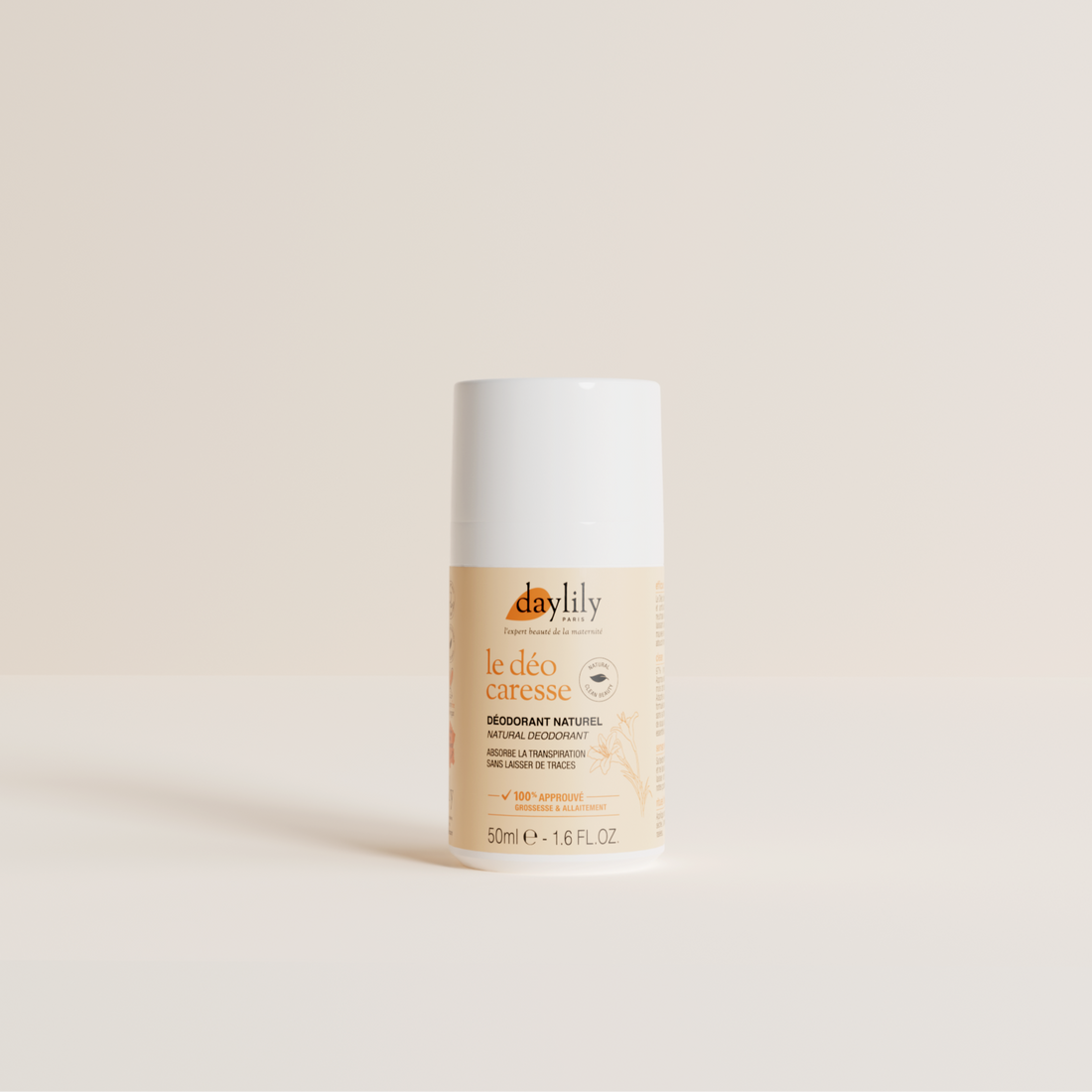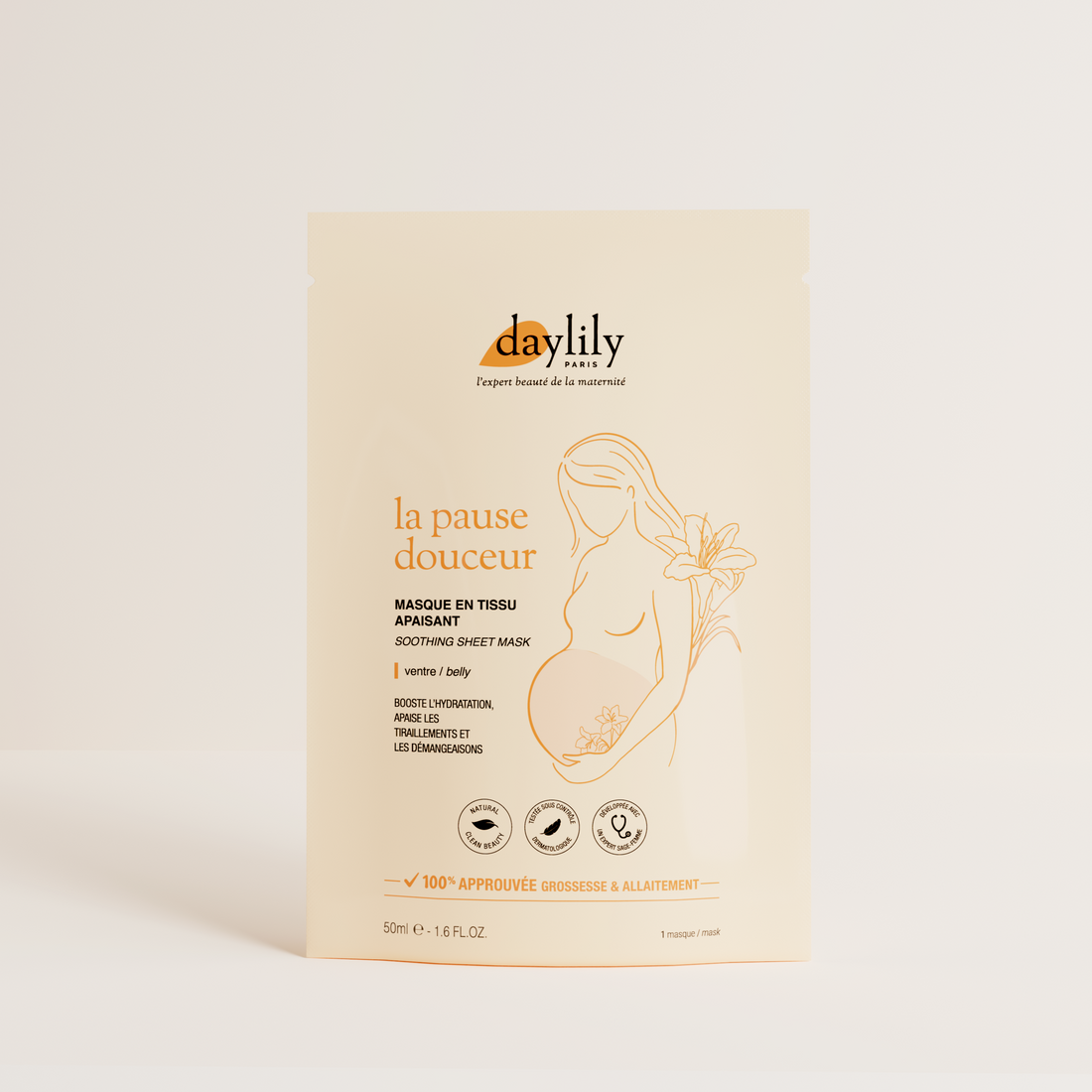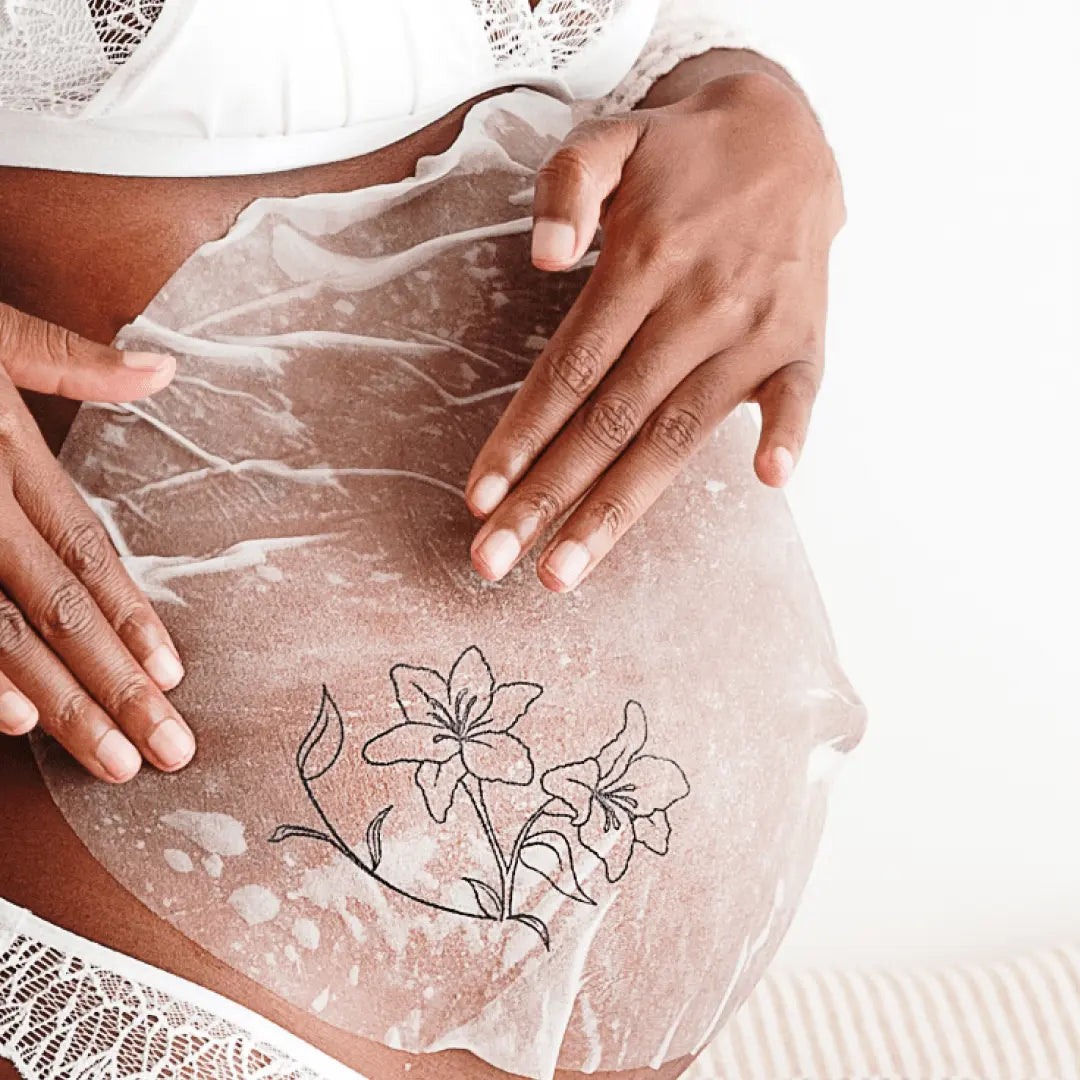Daylily Paris is a brand of clean, sensorial and effective skincare products, made in France and 100% compatible with pregnancy and breastfeeding. We're also committed to sharing quality information for an enlightened and relaxed maternity. 🧡
Lower abdomen pain during pregnancy
Throughout the three trimesters of pregnancy, you may experience more or less marked pain which will appear in different areas of the body. Some future mothers will have pain in the lower back, others will have a sensitive and painful chest at the slightest friction, and others will experience heavy legs, caused by a slowdown in blood circulation or even the very unpleasant sciatica of pregnancy… But the pain that worries pregnant women the most is certainly that which occurs in the belly since it is precisely in this area that the fetus grows. We can then very quickly wonder if everything is going well and cause stress to rise!
Stomach pain during the first trimester is common. They can be felt as heaviness, bloating, tightness which creates a certain discomfort. You should know that when you are pregnant, your body releases more hormones, in particular estrogen, which softens tendons and ligaments and can cause localized pain.
Well known to pregnant women, ligament pain manifests itself at the beginning of pregnancy, when the baby is settling in. They are completely normal because your uterus must stretch to make room for the embryo. As a result, they are often more marked during a first pregnancy than during subsequent pregnancies when your body, more flexible, remembers what awaits it!
From the first trimester, it is also common to feel pain similar to period pain in the lower abdomen. Rest assured, this is normal and does not necessarily mean there is a problem.

In the second trimester Braxton Hicks contractions may begin. Also called training contractions, they are a sign that your uterus is slowly preparing for birth. If they are neither numerous (10 to 12 per day maximum), nor regular, nor painful, there is no reason to worry: they have nothing to do with the start of labor.
At the end of pregnancy, pain in the lower abdomen may return. This is due to the volume of your stomach and the weight of the baby, which press heavily on the ligaments. At the same time you secrete large quantities of relaxin, this hormone which has the role of softening the ligaments and muscular tissues in preparation for childbirth. You can also apply a heat source to soothe yourself. Mama Cool is a gel strip that can be used hot or cold for many purposes. You can find it in our perfect postpartum kit: Mama Saver. Physiotherapy or osteopathy sessions can relieve this discomfort. But don't worry, if the pain is unpleasant, it will also soon be over since it will disappear on its own after the baby is born!
You may also feel concerned by feelings of tightness and itching localized on your stomach which are often unpleasant to experience on a daily basis. You can find some tips to relieve this discomfort and the right actions to adopt in our dedicated article: Pregnancy: How to relieve itchy stomach skin?
When pregnant, transit slows down and – glamorous moment – constipation is one of the minor ailments often felt by pregnant women. Small ailments which manifest themselves as intestinal pain, in the stomach! To limit them, remember to drink a lot and walk as soon as possible to reactivate transit.
Stomach pain can also occur in cases of denial of pregnancy. The pregnant woman is not aware that she is expecting a baby, and all the “clues” of pregnancy are minimized (the belly does not grow or only slightly, for example) or reinterpreted. The baby's movements will be perceived as bloating, or attributed to intestinal disorders.
Lower abdomen pain when pregnant: when to worry?
Certain pains are the echo of more or less serious problems. It is the intensity, frequency of pain, and the appearance of other symptoms (such as vaginal bleeding, fever, sudden nausea, etc.) that should alert you.
A miscarriage is often announced by cramps in the lower abdomen and heavy bleeding. The risks are greatest during the first three months of pregnancy. It is necessary to consult as quickly as possible to carry out the tests (such as a blood test to measure the famous HcG, the hormone at the start of pregnancy) which will confirm or refute the diagnosis. Rest assured, however, all pain and bleeding are not synonymous with miscarriage and can have other origins (“anniversary” bleeding on the expected date of your period, hematoma, placental abruption, etc.).
Three to six weeks after the start of pregnancy, intense pain in the lower abdomen can portend an ectopic pregnancy - that is, the egg does not attach itself to the uterine cavity but to the fallopian tube. fallopian, on an ovary, in the abdominal cavity or on the cervix. If they only appear on one side and are accompanied by scanty, blackish blood loss, you should consult urgently. Ectopic pregnancy requires immediate treatment or even surgical intervention to avoid bursting of the tube and massive hemorrhage, which can lead to infertility and endanger the life of the mother-to-be.

Pregnant women are more prone to urinary infections. The uterus exerts pressure on the bladder which does not empty completely: the bacteria therefore tend to stagnate. If the pain is accompanied by a burning sensation when you urinate, or a certain heaviness in the stomach, there is a good chance that you have a urinary infection ! This is common during pregnancy (it affects around 10% of pregnant women*) and must be treated to avoid premature delivery.






















